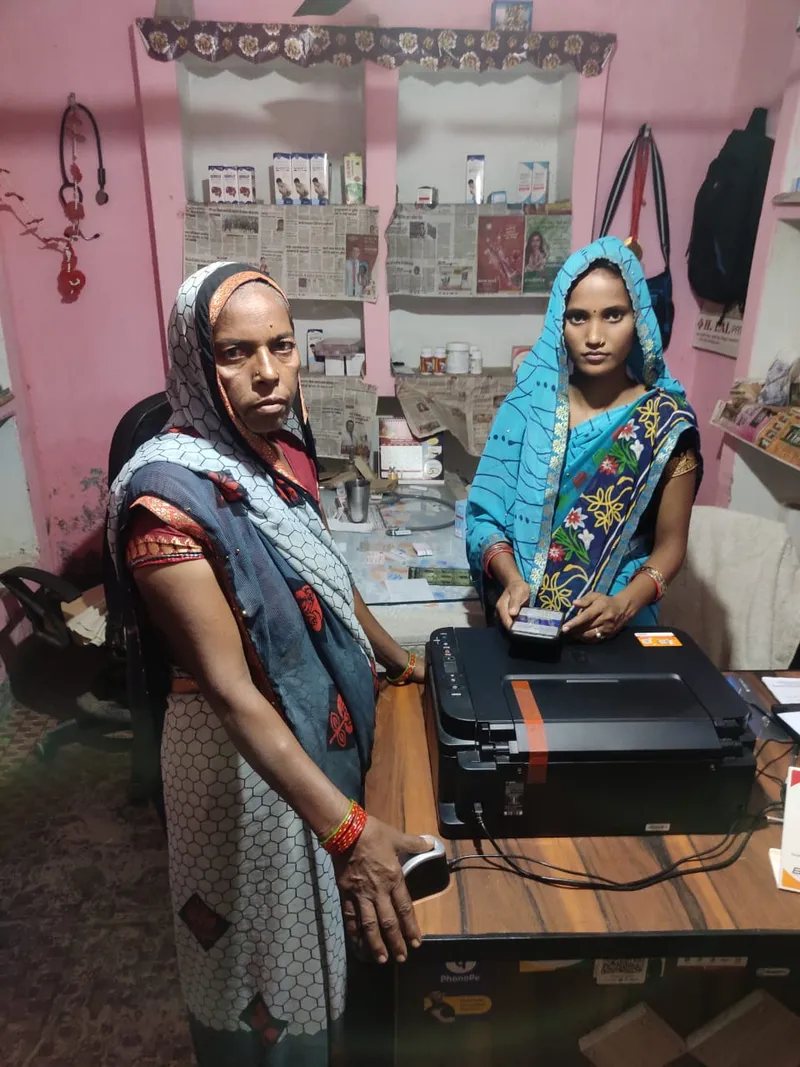Empowering Bharat with local women entrepreneurs and expanding financial access
Local women entrepreneurs act as catalysts in delivering financial services to last-mile communities. Their understanding of local needs and social dynamics can help bridge the gap between formal financial institutions and rural consumers.
Rural and semi-urban regions of Bharat comprise over 65% of the population and contribute 47% to the nation’s GDP. For these areas to achieve their full potential, financial inclusion is imperative. However, despite progress in telecom and internet, these regions still struggle to access essential financial services. Many rural consumers have limited financial literacy, unsuitable products, complicated documentation processes, and restricted formal credit options.
Additionally, there is a significant need to foster a savings habit among these populations to ensure financial stability. Bridging this gap is vital for inclusive economic development, and local women entrepreneurs are poised to be key players in this mission.
Local women entrepreneurs act as catalysts in delivering financial services to last-mile communities. They can leverage their understanding of local needs and social dynamics and effectively bridge the gap between formal financial institutions and rural consumers. Empowering women as banking or business correspondents enhances the trust of homemakers, allowing them access to financial services, thereby fostering economic empowerment and self-reliance.
Women in rural and semi-urban Bharat are not just homemakers but are also potential entrepreneurs and community leaders. However, according to the National Family Health Survey, 33% of the female population in rural areas lack access to schooling options, compared to 17% in urban areas. Further, high rates of maternal mortality and adolescent pregnancies pose significant challenges. For instance, 16.3% of women are married between the ages of 18 and 19, and 8% of women in rural areas experience pregnancy between the ages of 15 and 19, a rate that is higher than that of their urban counterparts.
These challenges highlight the need for initiatives that support and empower women. Their role in the financial ecosystem can be transformative, especially when they become business correspondents. These women, referred to as ‘digital naari’, ‘bank sakhis’ and ‘community bankers’ in various initiatives, are trained to provide financial services in their communities. Their involvement ensures that financial products are tailored to meet the needs of rural households, making these services more accessible and understandable.

Ideal intermediaries for financial inclusion
Training women to become business correspondents involves equipping them with the necessary skills and basic infrastructure to offer a range of financial services–from opening bank accounts to paying utility bills and offering insurance. This not only empowers the women themselves but also builds a network of trust within the community. Women are often more trusted than external agents, making them ideal intermediaries for financial inclusion.
The impact of empowering local women entrepreneurs extends beyond individual financial transactions. It fosters a sense of empowerment and self-reliance among women, which can lead to broader social and economic changes. As these women gain confidence and skills, they inspire others in their communities to pursue economic opportunities, creating a ripple effect of empowerment and growth.
Moreover, involving women in financial and digital service delivery addresses the issue of low financial literacy. Women business correspondents can educate their peers about financial products and other digital service offerings, demystifying banking processes and making financial literacy more widespread.
This grassroots approach ensures that financial education is relatable and practical, leading to better financial decision-making among rural households. With India ranking 165th in female labour force participation, and women performing 3.26 billion hours of unpaid work daily, empowering women through such initiatives can significantly improve their economic prospects.
Focusing on creating an inclusive financial ecosystem by harnessing the potential of local women entrepreneurs is essential. By supporting and training these women, the reach of financial services can extend to the most remote areas, ensuring that no one is left behind. This approach not only boosts financial inclusion but also promotes gender equality and economic development.
Empowering local women entrepreneurs and expanding financial access for Bharat’s households are crucial steps towards fostering a sense of empowerment and self-reliance. By integrating women into the financial ecosystem as business correspondents, we can build a more inclusive and resilient financial system that benefits everyone. This strategy not only addresses the immediate needs of rural and semi-urban communities but also paves the way for sustainable development and prosperity across Bharat.
The author is Chief Marketing Officer, PayNearby, a branchless banking network.
Edited by Swetha Kannan
(Disclaimer: The views and opinions expressed in this article are those of the author and do not necessarily reflect the views of YourStory.)







